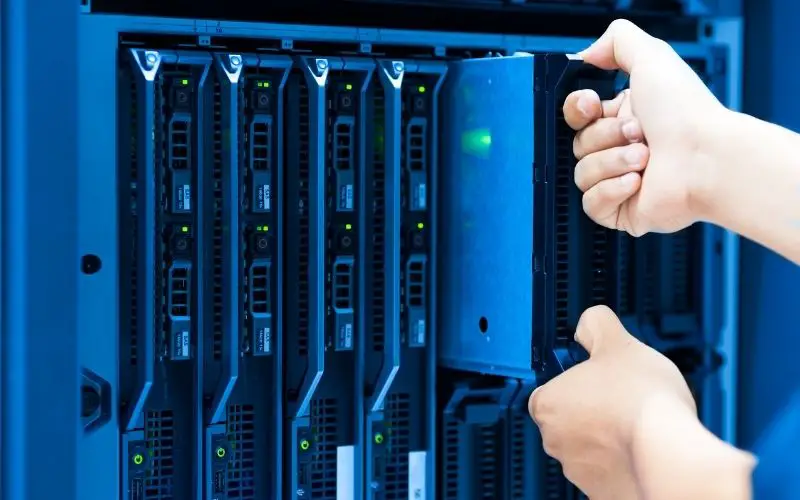Table of Contents
Is there a difference between a NAS Synology system and a generic server?
That depends on how one plans to use the equipment. Whether you’re a corporation or just a homebody techie with a penchant for managing a mini-network, sometimes server decisions can seem like the Grand Canyon to get across and make a decision. Here’s what you need to focus on to pick the right setup for your needs.
Ease of Use and Starting
Hands down, a NAS system is far easier to get started with than a generic server. If you’re not the type to deep-dive into the intricacies of server management and Linux coding and you simply want to have a fundamental server that does the job for your network, then a NAS Synology system is going to make more sense.
A generic service following a traditional design might be more robust in some situations, but it requires a far deeper level of technical know-how, both to set it up as well as maintain it.
The Advantages of a NAS
By definition, network-attached storage, or a NAS, is just that. It is a data storage bank that operates as an archive resource for multiple computers. Sometimes NAS’ can be packaged with a full computer, but they can also be obtained on their own.
You got full control over your files
You get control over what files you save and how you save them. It’s an incredibly powerful tool that helps you organize all your files and private information in your life. You can save files from your family members as well. You can save your miles from your phone, your computer at home, and work.
It’s cheaper
Cost-wise a NAS is going to demand far less out the door than a full server tower, even if they are identical in useful storage size. Much of the cost-difference comes in utility; a NAS only stores data for the most part and does not do any kind of intricate network management.
Synology NAS is made to be easy
When a user focuses on a Synology NAS, then things get interesting. Because Synology provides its own software for managing a NAS, a user can start to venture into far more than just plain storage.
The typical outlay will be about $200 for the NAS and then another $200 for the hard drives, adding up to about 4 terabytes of space. For the user, there’s no coding or tweaking.
One simply just plugs everything in with regards to the hardware and the Synology software takes care of the rest. Just following the provided instructions, make sure the power is connected with an ethernet/Internet connection, and the system is off to the races.
While the above sounds great and makes one wonder why Synology-setup NAS’ are used more, the fact is a NAS doesn’t quite measure up to a full server and storage array. It can also be a bit more of a challenge to apply a repair on versus a generic server.
The advantages of the generic server
The fundamental role of a server is to provide a 24/7 connection to records, processing, and programs. No matter when one logs in, the system is up and running and 100 percent available to each user. To do this, it has to have sufficient storage, processing capability, traffic management protocols, and plenty of RAM to run multiple demands simultaneously.
A starting server is easily going to need 1 terabyte and can expand up to four drives at least. Again, on storage alone, a NAS will be cheaper, but a server provides far more power for a large user population.
Traditional servers are expensive
However, to have access to that power, a server is easily going to start at $600 or more and go higher with more advanced software. A basic system can be built on a shoestring budget with a Linux stack, but a far more robust system is going to run in the thousands of dollars. $10,000-$20,000 is not unreasonable for a server with heavy data demand, such as a geospatial server.
Servers are great for redundancy and backups to protect records, but to effectively create such a protection one has to run, you guessed it, multiple servers. No surprise, a properly setup server room will easily start getting close to $30,000 to $50,000. All that power and storage capability at speed comes with a hefty price.
No surprise, servers make perfect sense for companies and organizations with lots of users, both on-site and remote. They do not make such much sense for a home network unless one is running a website connected to a large remote population of users.
A Synology NAS Choice
So, in short, Synology NAS can work as a server to an extent and is a great choice for a small network, a home network, or a singular user website platform operation. It provides a robust amount of storage, with Synology’s version setup being extremely easy, and the NAS approach gives the user a solid step into a larger network system without the heavy investment of a traditional generic server.
However, a NAS won’t provide the full capability of a generic server. Then again, one user or a few users probably don’t need that much capability in the first place and could put the funds to better use elsewhere.
Other interesting articles:

